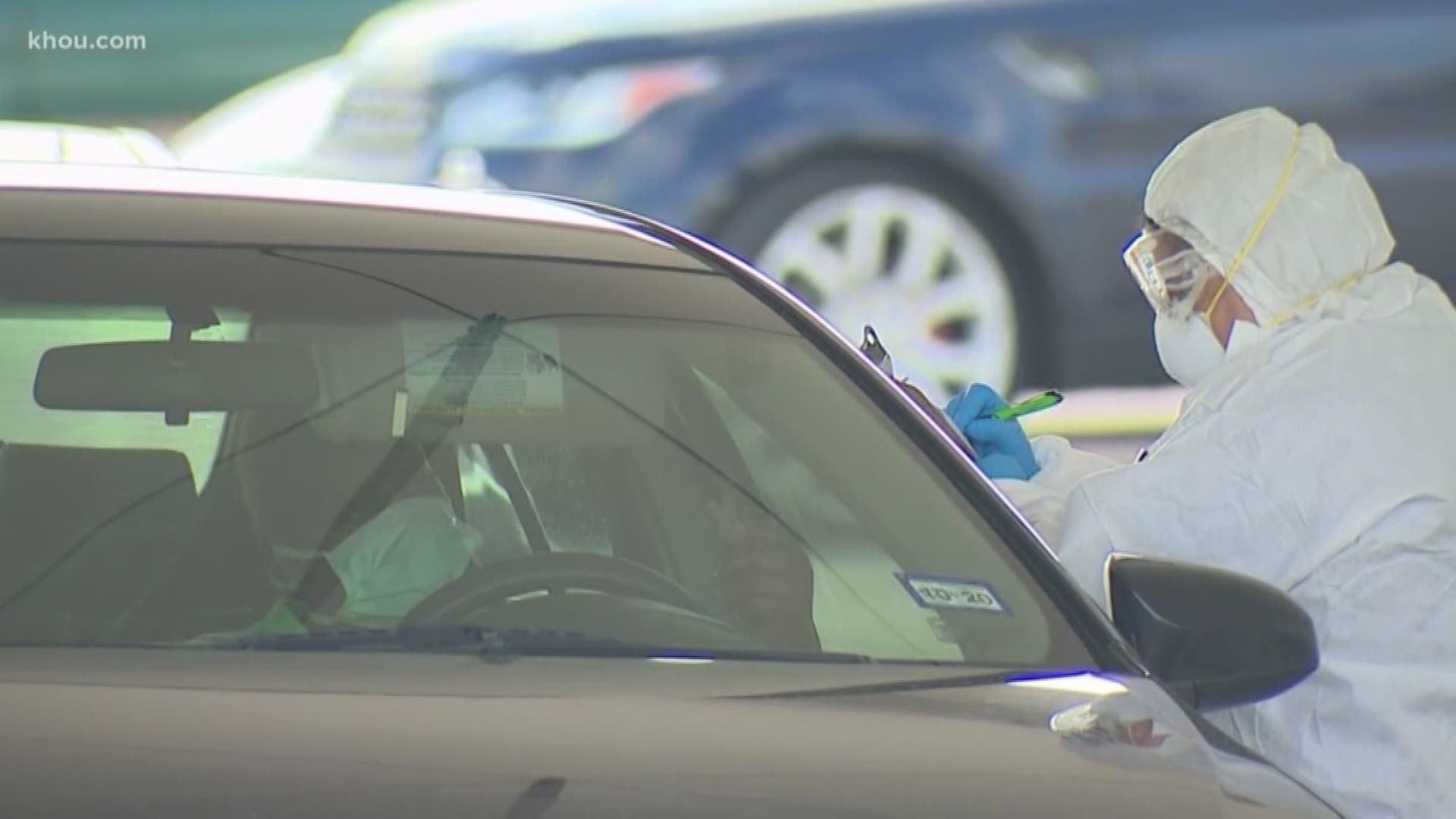HOUSTON, Texas — The effects of the coronavirus pandemic could peak in Texas earlier than previously projected.
"It was early May and now they’ve moved it toward the end of April," Dr. Peter Hotez, of the Baylor College of Medicine, said "So later than the national peak, but earlier than it was.”
Hotez was referencing the latest COVID-19 tracking data compiled by the University of Washington’s Institute for Health Metrics and Evaluation.
As of Monday morning, it showed the national peak occurring on April 15.
Selecting Texas from a drop-down menu on the database showed peak here happening four days later, on April 19.
"They’re trying to update the model as new information comes in," said Hotez. "This has been one of the problems with the models ... they’re (only) as good as the assumptions.”
They’re also based on available statistics like patients who’ve either been admitted, treated or positively tested for the disease.
And it doesn’t break down different areas in huge states like Texas.
"To think that the epidemic is going to look identical in El Paso as Houston is probably not the case," said Hotez. "Our demographics are different, (as is) our location.”
Whether it’s late April or early May, Hotez said it doesn’t negate the importance of aggressive social distancing in order to reduce demand on our healthcare system.
"And then we’ll have to see where we are April 30," said Hotez. "Ideally we’ll be coming on the way downward, but it could change again depending on new information.”
Harris County public health officials were not willing to give an exact date for a potential peak.
But they continue to stress the importance of preventive measures.
Houston's top health official said he'd like to see us peak later because it would mean the curve was more effectively flattened and the peak would be less dramatic.
Recent coronavirus coverage
Coronavirus symptoms
The symptoms of coronavirus can be similar to the flu or a bad cold. Symptoms include a fever, cough and shortness of breath, according to the Centers for Disease Control. Some patients also have nausea, body aches, headaches and stomach issues. Losing your sense of taste and/or smell can also be an early warning sign.
Most healthy people will have mild symptoms. A study of more than 72,000 patients by the Centers for Disease Control in China showed 80 percent of the cases there were mild.
But infections can cause pneumonia, severe acute respiratory syndrome, kidney failure and even death, according to the World Health Organization. Older people with underlying health conditions are most at risk for becoming seriously ill. However, U.S. experts are seeing a significant number of younger people being hospitalized, including some in ICU.
The CDC believes symptoms may appear anywhere from two to 14 days after being exposed.
Human coronaviruses are usually spread through...
- The air by coughing or sneezing
- Close personal contact, such as touching or shaking hands
- Touching an object or surface with the virus on it, then touching your mouth, nose or eyes before washing your hands.
Help stop the spread of coronavirus
- Stay home when you are sick.
- Eat and sleep separately from your family members
- Use different utensils and dishes
- Cover your cough or sneeze with your arm, not your hand.
- If you use a tissue, throw it in the trash.
- Follow social distancing
Lower your risk
- Wash your hands often with soap and water for at least 20 seconds. If soap and water are not available, use an alcohol-based hand sanitizer.
- Avoid touching your eyes, nose, and mouth with unwashed hands.
- Avoid close contact with people who are sick.
- Clean and disinfect frequently touched objects and surfaces.
- If you are 60 or over and have an underlying health condition such as cardiovascular disease, diabetes or respiratory illnesses like asthma or COPD, the World Health Organization advises you to try to avoid crowds or places where you might interact with people who are sick.
Get complete coverage of the coronavirus by texting 'FACTS' to 713-526-1111.

